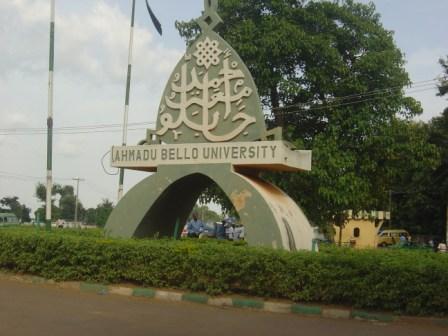
The bill averages N300 million monthly, given the cost of N206 per kWh under the Band A electricity tariff, which the institution had described as “unaffordable.”
The university made this known in a letter sent to President Bola Tinubu on Monday, July 1, 2024, titled, ‘An open letter to the visitor, President Bola Ahmed Tinubu, over the looming energy crisis in Ahmadu Bello University, Zaria.’
The letter, signed by 40 professors from different departments, called on Tinubu to intervene in the huge tariff, adding that universities should be shielded from the extremities of commercialisation.
The letter noted that the institution, alongside “Nigerian public universities in general, cannot afford it due to their weak financial position resulting from chronic underfunding.”
The statement partly read, “We, the undersigned Nigerian citizens and academic staff of the Ahmadu Bello University, Zaria, wish to forward a complaint over the debilitating energy crisis bedeviling Ahmadu Bello University given the centrality of electricity supply to university operations and seek your intervention for its resolution.
“We take this action out of the conviction that, as the President of the Federal Republic of Nigeria and Visitor to the university, Your Excellency is in a position to mediate over the matter especially because the crisis aggravated with the recent high increase in electricity tariff in the country, which ABU in particular, and Nigerian public universities in general, cannot afford due to their weak financial position resulting from chronic underfunding.”
It revealed that due to the hard economy, educational institutions should be safeguarded from the burden of meeting market-induced pricing, especially where their capacities are highly constrained.
“It is beyond dispute that Nigerian universities are not, by any law, statute, or ethical or socio-economic definition, profit-making or revenue-generating outfits. Ahmadu Bello University, for instance, with an average total annual budgetary overhead grant of N150 million only, requires an astounding but unaffordable N3.6 billion (monthly average of N300 million) to settle its annual electricity bill, at the cost of N206/kWh per unit of the so-called band A.
“For a university that requires about seven megawatts of electricity, in addition to providing other energy costs per month, the financial implication is far beyond its capacity. Your Excellency, even if the market-oriented principle of ‘cost-sharing’ between the government and parents/wards is a viable option, the inability of the university to mobilise adequate financial and material support entails that it transfers the huge cost to students by hiking up fees,” the statement read.
The letter in which, several educational organisations were copied, explained that if the N3.6bn were to be transferred to the university’s 50,000 students, the current municipal charges alone would have to be hiked up by at least a rate of 500 per cent, saying not only is this sum impossible to pay by virtually all students but it also negates the position of the Federal Government on the matter.
The workers advised, “In light of the above considerations, Your Excellency, we urge you, in your capacity as the Visitor to all Federal Universities and the Head of State and Federal Government, to take urgent and decisive action by directing the Federal Government to cover the cost of electricity supply as part of the overhead grant to all federal universities in the country.
“Alternatively, Your Excellency, considering the Federal Government’s 49 per cent ownership stake in GENCOs and DISCOs, ongoing investments in them, and its role as guarantor of social balance and security, you could instruct DISCOs to provide uninterrupted electricity supply to all Nigerian universities in exchange for tax credits,” adding that the FG could “mandate DISCOs to introduce a dedicated social tariff band with reduced rates that universities can afford, given their current funding constraints.”





